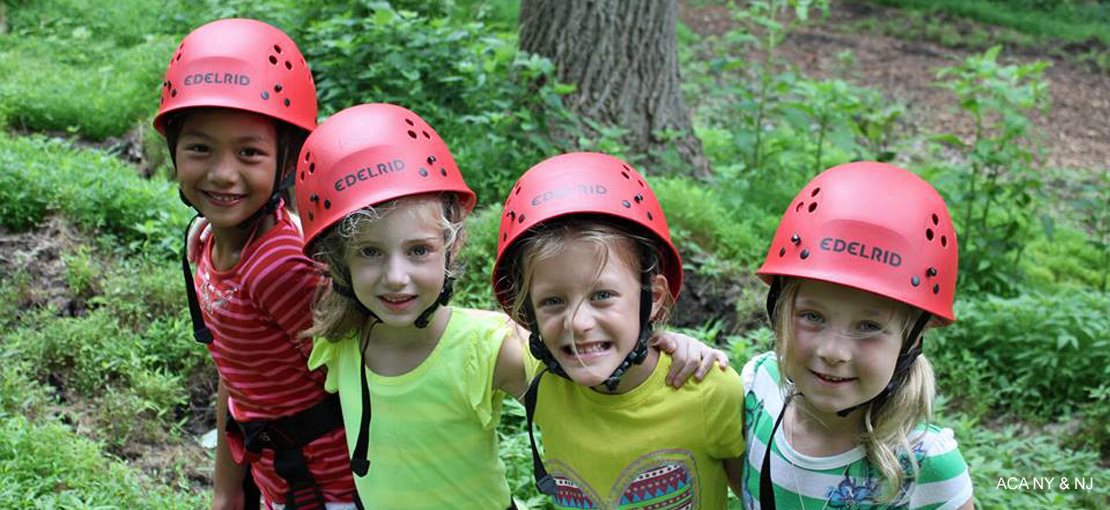Thinking about camp for your children this summer?
Don’t put the search off. Camps are filling up quickly and you don’t want to be locked out of a program that is a good fit for your child. Here are some tips for finding the right camp for your child.
Think About Who Your Child Is
Take the time to think about who your child is before choosing a camp. Does your child thrive in smaller settings? Is your child athletic and enjoys participating in sports all the time? Or does your child prefer art and theater? Deciding what type of camp environment would be a good fit for who your child will help you guide your search.
Day or Overnight
Are you deciding between a day camp or an overnight camp? Day camps generally begin around age 3 and overnight camp for age 8 and up. Day camp is often a child’s first camp experience and is a wonderful opportunity for your child to practice independence in a safe and nurturing environment. Day camps offer a range of activities to help your child build confidence and be exposed to new things. It is also a place for children to meet new friends and be part of a caring community.
But age shouldn’t be the only deciding factor. If you are thinking about overnight camp, don’t get too caught up in the age of your child. While some children are ready at age 8, some may be ready at age 10 and that is ok. Has your child mentioned overnight camp and is showing an interest? Are they hearing their friends discuss their experience at overnight camp? Are they able to separate from you easily? Does the idea of overnight camp sound exciting to them? Overnight camp is a unique environment for children to explore their interests, learn about who they are, and gain independence by living away from their and becoming part of a warm and caring community. There are both full summer overnight camps and camps that offer shorter session lengths. Thinking about what your family’s summer looks like will help determine what session length will be a good fit.
Beginning Your Search
There are various ways to go about your search. You can talk to friends about their children’s experiences at camp as a starting point, however, make sure to do your own research. Each child and family are different and what might be the right fit for one child isn’t necessarily the best for another.
Search online and check out different camps’ websites and social media. Look at the camp’s philosophy or mission, what activities are offered, and the different sessions offered. Don’t just register for a camp from the website. The next step is to call the camp and speak with the director or a member of the leadership team. Ask questions and make sure you are happy with the answers. One of the most important aspects of finding the right camp for your child is forming a relationship with the leadership team and feeling comfortable with who they are.
Touring a camp is one of the best ways to get a feel for a camp. If you are able to see a camp in action during the summer, the year before you send your child, you will see campers in activities and how the staff interacts with campers. If you can’t tour that far in advance, many overnight camps offer fall tours and special events. Day camps tour all year long and also offer fall and spring open house days.
Camp fairs offer families an opportunity to meet with dozens of day and overnight camps all in one place. Families can visit a camp fair and learn about many different camp programs all within an hour or two. Camps are available to explain their program and answer any questions you may have.
Families can also call the American Camp Association, NY and NJ for free, one-on-one advice in finding the right day or overnight camp for their child. There are so many different camps and speaking with someone knowledgeable about the camps will help you match up a camp with who your child is.
No matter how you begin your camp search, by sending your child to camp, you are providing them with the opportunity to gain important life skills like independence, resilience, and confidence all while learning new activities and making new friends.






Add A Comment
Thank you for your comment.
Sorry! There was a problem with your comment submission. Please try again.
Comment
Allowed HTML: <b>, <i>, <u>, <a>
Comments
Thank you for your comment.
Sorry! There was a problem with your comment submission. Please try again.
Thank you for your comment.
Sorry! There was a problem with your comment submission. Please try again.